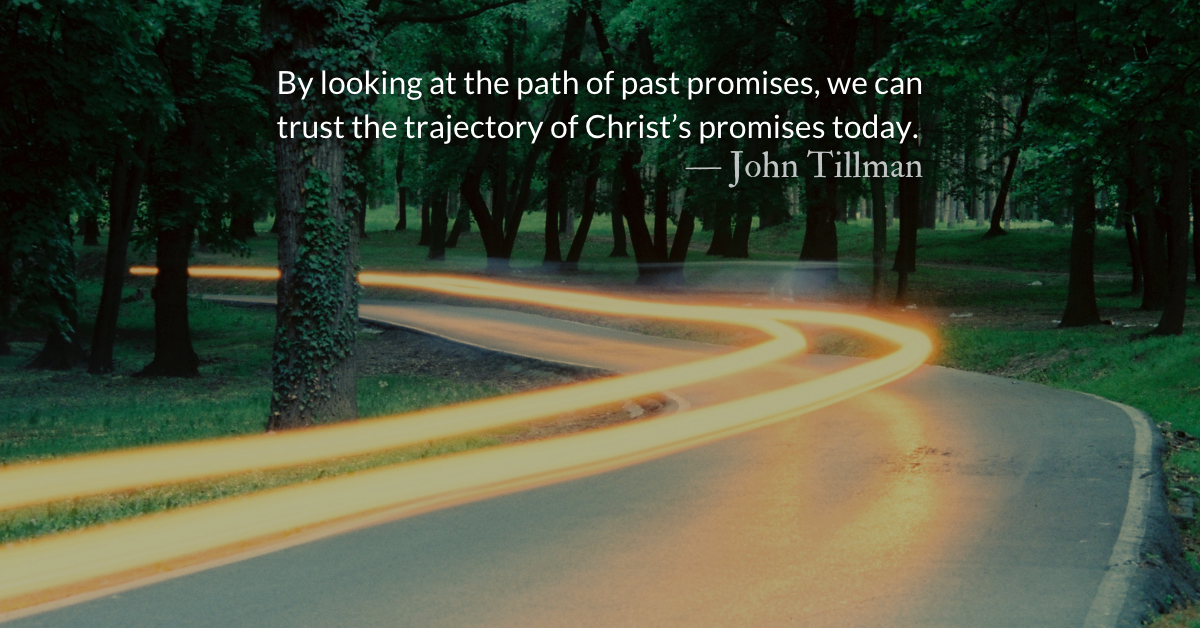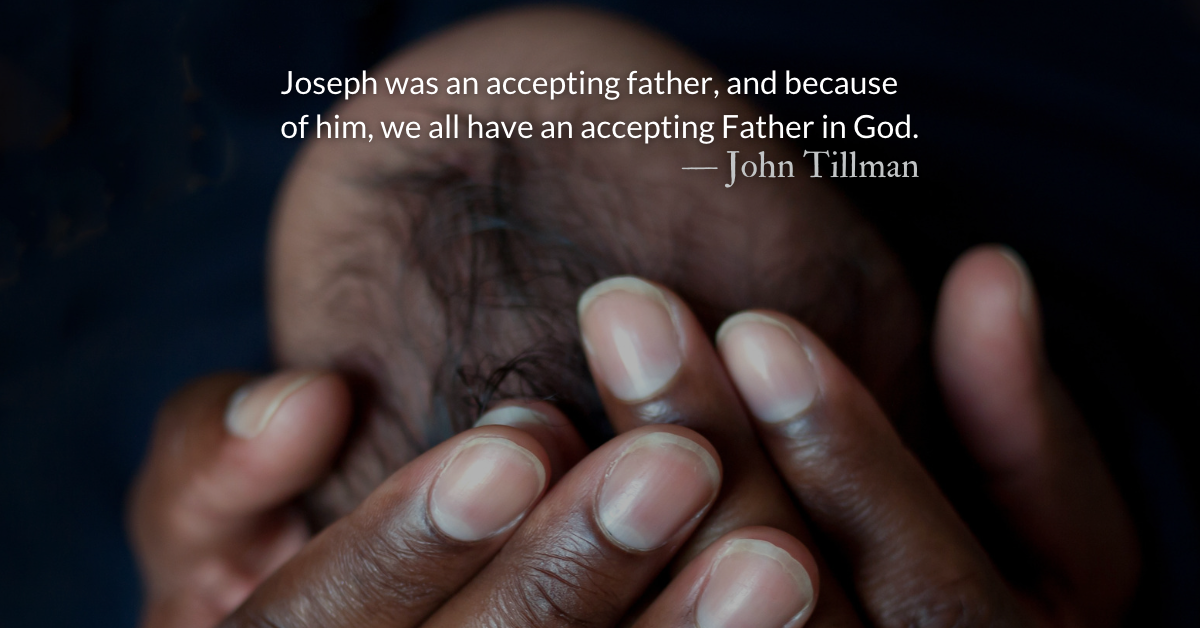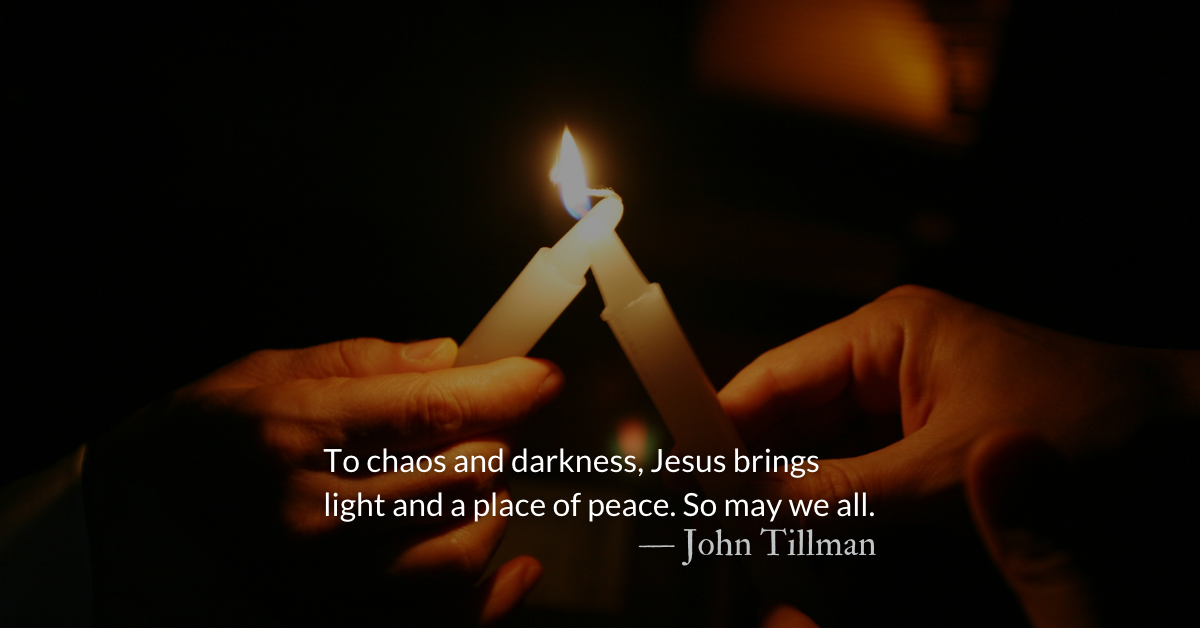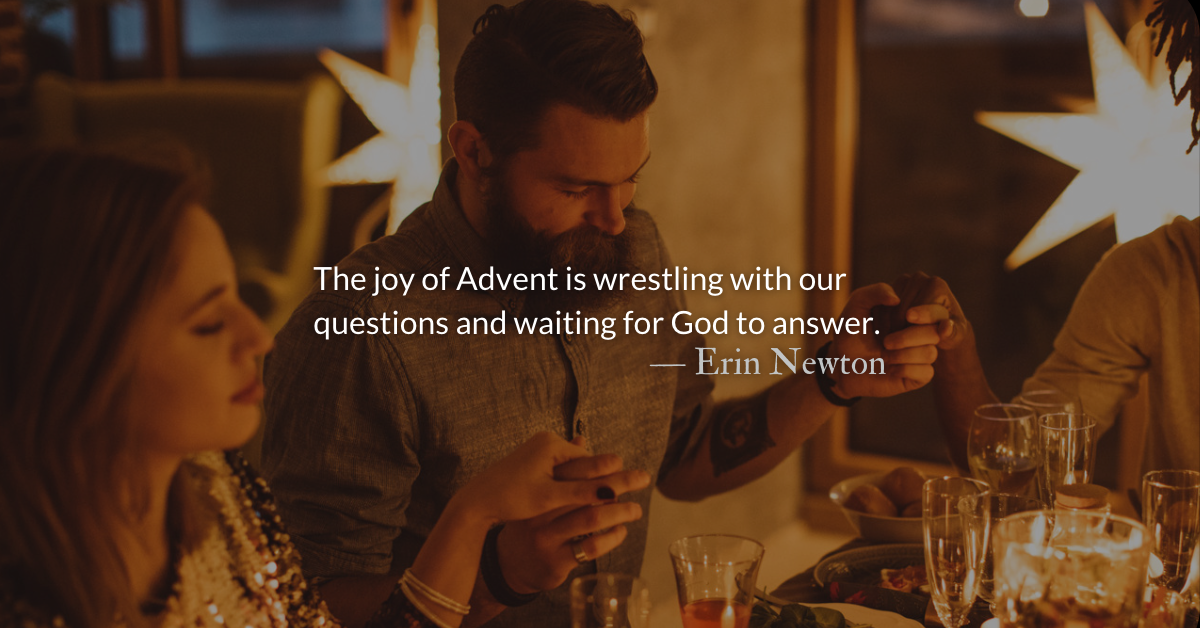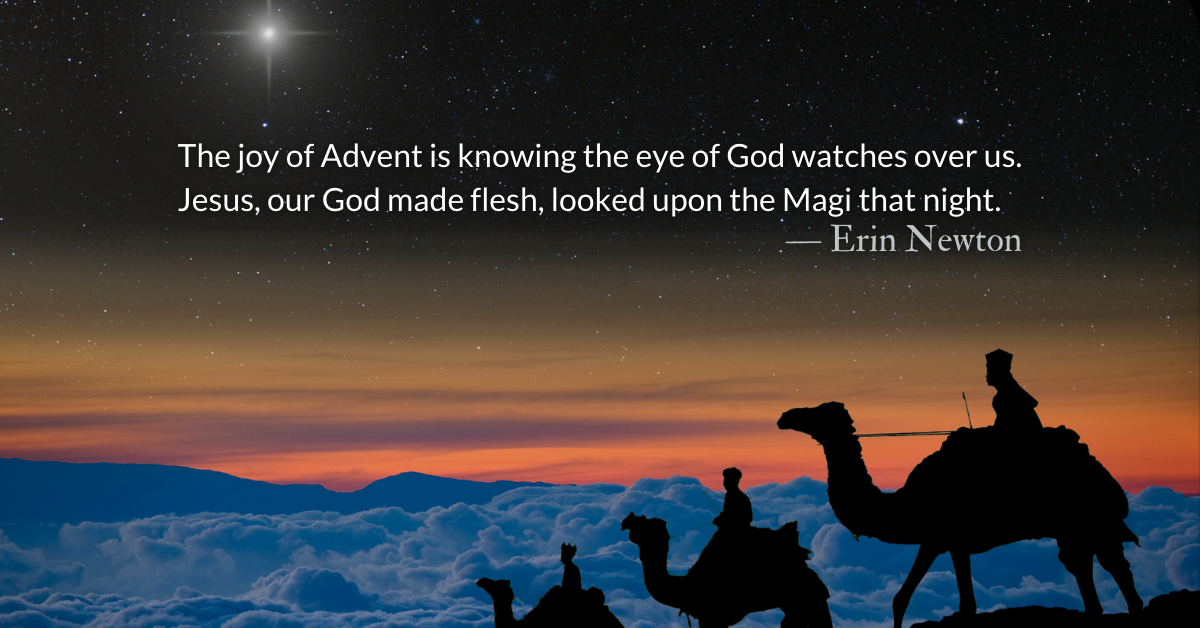Scripture Focus: Matthew 2.4-5, 15, 17, 23
4 When he had called together all the people’s chief priests and teachers of the law, he asked them where the Messiah was to be born. 5 “In Bethlehem in Judea,” they replied, “for this is what the prophet has written
15 And so was fulfilled what the Lord had said through the prophet
17 Then what was said through the prophet Jeremiah was fulfilled
23 So was fulfilled what was said through the prophets
Reflection: Good Things Coming True
By John Tillman
A narrator’s voice often influences how we perceive a story. The TV series, Arrested Development, featured a narrator who inserted his own opinion about what was happening. He often pointed out contradictions or lies by the main characters. In one scene, Gob (pronounced Job) is lying about having slept with someone.
Gob: I did and it was disgusting.
Narrator: They didn’t. But it would have been.
The narrator’s voice often inserts itself into Matthew’s Gospel, but Matthew isn’t pointing out bad things or lies. He’s telling us when good things come true.
The word “fulfill” occurs more in Matthew’s Gospel than in any other Gospel. Fifteen times, Matthew either says a prophecy has been fulfilled or records Jesus saying something must happen to fulfill the prophets.
Each Gospel author has a focus. Mark focused on Jesus being powerful, yet a servant. Matthew focuses on Jesus as the prophesied king, the Son of David, the Messiah, or Christ. He highlights prophecies concerning the messianic kingship of Jesus.
Many religions prophesy the future. This includes the non-spiritual religions of science, politics, and economics. With forecasts, polling data, and analysis, these prognosticators make promises too. But how do we uncover the truth? What prophecies can we trust?
In the mystery Knives Out, the detective Benoit Blanc describes the process of uncovering the truth using an analogy of watching the arc of a thrown ball. Once you understand the ball’s arc, finding where it will land is a simple matter of mathematics.
Matthew wants us to understand the arc of the previously fulfilled promises pertaining to Jesus to build trust. By looking at the path of past promises, we can trust the trajectory of Christ’s promises today. Every promise God has made will land—will be made “yes” in Christ Jesus. (2 Corinthians 1.20)
If God, over millennia, can order the occurrence of events so that Jesus is born in the proper place, the proper clan, sojourn in Egypt, return to live in the correct obscure village, and fulfill the minutiae of other messianic prophecies, surely he is worthy of us trusting to him our tomorrow?
Jesus is not only called “Faithful and True,” he has proved to be so. Like Matthew, as we serve Jesus, we may need to explain to others the fulfillment of yesterday’s promises so that they can join us in trusting the promises of salvation. Good things are coming true.
Divine Hours Prayer: The Refrain for the Morning Lessons
Those who sowed with tears will reap with songs of joy.
Those who go out weeping, carrying the seek, will come again with joy, shouldering their sheaves. — Psalm 126.6-7
Today’s Readings
Genesis 41 (Listen 7:30)
Matthew 2 (Listen 3:18)
Read more about Previsualizations of Promises
One day we will be ultimately freed and the world we are meant to live in will be rebuilt. This will be the ultimate fulfillment of all God’s promises.
Read more about False Promises and Threats
Lord, we are besieged with false promises and threats…pacification instead of peace and retribution instead of righteousness.


